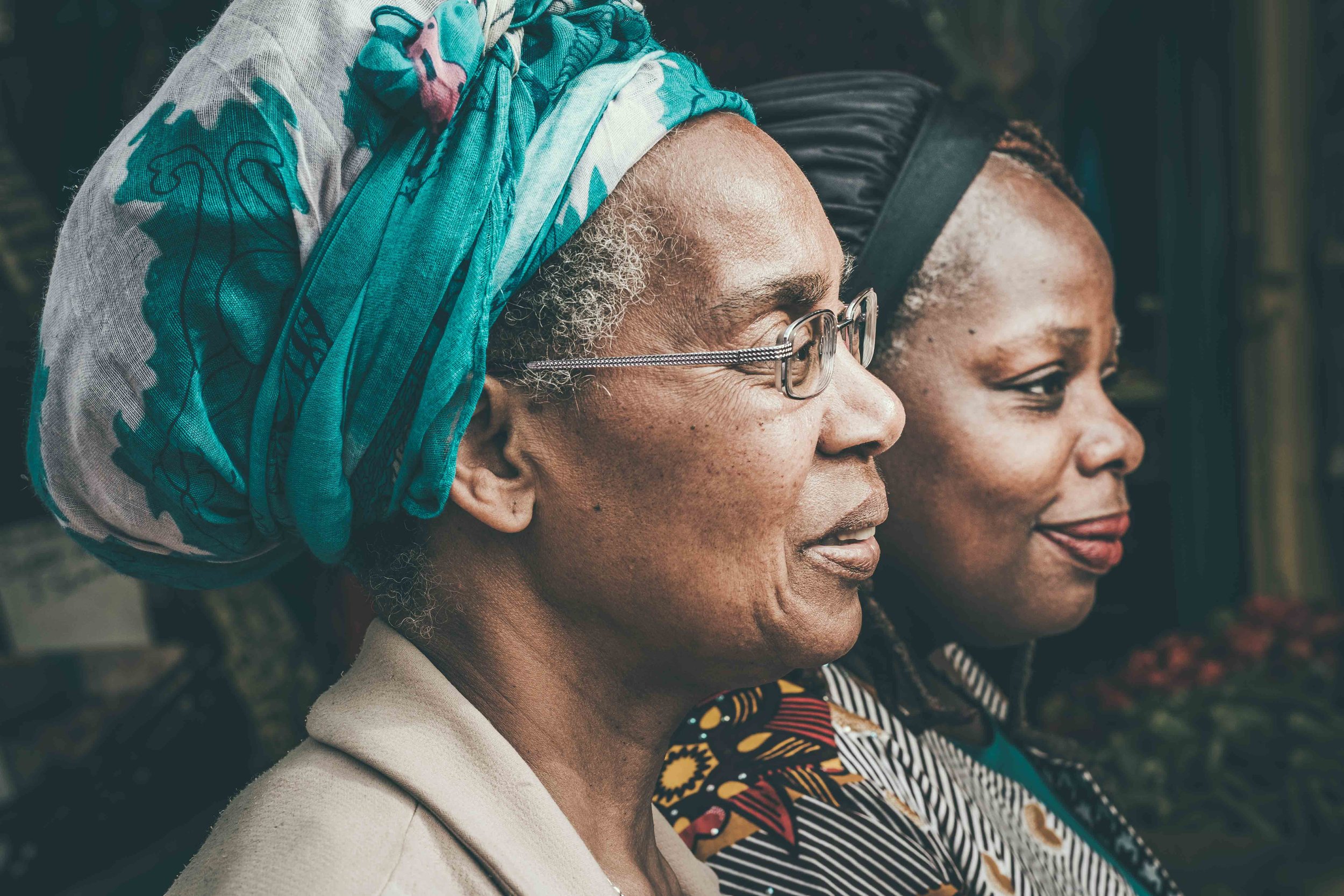Rosanna
Rosanna
Photo: Wayne Crichlow
Rosanna
I was born and grew up in East London and when I was a child in Forest Gate, we grew up close to West Ham Football ground. It was full of National Front and very racist. I used to hear my parents talking and some of their stories would share the hatred and venom some white people felt towards us back then in the 70’s and 80’s. School wasn’t much better. Teachers would dumb you down and beat you. The working classes would get that treatment as well and we all know it was abusive and racially motivated. There were no black teachers back then and so structural. Institutional racism was rife. From a young age we were well aware of this at home. It was a totally different country back then. But despite this aggression, there was community. Despite what was happening all around us, we had each other. Everything was white, the schools, the church, the doctors, but this impacted us, and we had a new generation where black history was starting to seep through.
Music helped us massively. It was like a rite of passage within the music where the lyrics and sounds taught us our history. Through these sound systems, we learned about social issues, African culture, diversity and what was going on. Our parents were more subservient because they had no choice. It was about fitting in and getting through because they needed the job, the house and they could be sacked on the spot just for being black or if they tried to change things.Coming from a community just like that, coming from my parents, my aunties, like I said we’d be cleaning the church, helping women, you know. There were funerals and that, where they were all there doing their work you know, the whole beautiful neighbour thing. It didn’t matter who you were. If you needed help you had a set of women and men, you had a set of women and men who would be there to help you. And that’s, that’s what we knew. That’s what we knew. And you, you give back you, you, you were taught.
We were a different generation who had community, music, and access to history. When we found out more about our history, we started speaking out and challenging the way we were treated and what we were being taught. This got many young black people into trouble and the education system created subnormal education for black children who they would then fast speed into a PRU (Pupil Referral Unit). We had a lot of that, but this was the time literally the age of Aquarius really, where we, we challenged. We spoke out. We were a lot more rebellious. We, we would challenge the police. We would challenge the teachers etc. That made a huge difference for us, but also there were still difficulties because we were doing that and our parents was “You know what, you all need to be careful.” “Don’t do this because you’ll get arrested.” “They’ll throw you in jail, they’ll beat you up.” Everybody knew somebody who had been stopped by the police, harassed by the police, beaten up by the police, for no reason at all. It was the SUS laws back in them days. You know Margaret Thatcher, she had ‘operation swamp’. In the early 80s that was all about stop and search without any warrant whatsoever and they were told to particularly to pick on young black men.
The Rastafarian movement helped us. One of the most humbling and forthright experiences was with Rasta. Rasta helped us through with everything from our own history, to our philosophy, our way of life, our way of being, health wise, I mean Rasta was there. Rasta was an identity. Rasta helped a lot of people with their identity and again it’s still two-fold as well. It all had a lot of impact on both men and boys and girls, men, and women because you then went against everything that you’d be brought up with and you’d been taught. So, Rasta seemed to be rebellious at the time. Along with Rasta there was reggae music and speaking out. Even our movements - you walked a certain way, you dressed a certain way, you had the music, you had, you had everything. Even though it was teaching you your history and your parents wouldn’t like it, they also saw that it, that it opened doors that they thought was quite dangerous for us. There was quite a lot of ignorance. It destroyed a lot of families too, because when people started locking up their heads and everything, parents would throw them out and not want them you know you so, there was a lot of paradoxes really, yeah, a lot of paradoxes but all that helped us through.
Rosanna and Ngozi
Photo: Wayne Crichlow
I moved to Hackney because it was diverse and had a lot of black people, especially the Ridley Road area. It was a very Caribbean. There were so many things going on in Hackney back then. There were the big clubs like the Four Aces and lots of lectures given about black history by the ‘Hackney’s Black Peoples Association’. There was the Caribbean bookshop and café ‘Centerprise’, where I spent a lot of time. I had my five children in the borough and focused on my career selling black literature…James Baldwin and Bell Hooks for example. All these people that are coming forward that weren’t available previously in this country so that you know that’s a role in society when you decide to give people, I think, knowledge. I had always been an avid reader from primary school, so I know the power of literature and stories.
My best friend’s sister used to order black books from America and then give them to us to borrow, and my cousin used to work in a in a place where they used to pulp books and magazines. She said I can get you these things and what you do is you sell them. I didn’t think about it, didn’t plan it, nothing like that but as soon as she bought them and I saw them, I was like “I’m going do stalls.” Some days you’d go to the park and set up stalls selling books there. I always vowed that I would always make books affordable for people. It started off because we had a lot of children so many of us had children and books were not affordable, so I vowed, you know what, I’m going to do this and the books are going to be affordable. And from that, as soon as I started it, it took off. One time I went out to a huge festival or something we came back with no books. We were selling books for £1, £2, £3…..We was going all over the country selling the books and black events. I did a lot of park events because back in the day you just had so many park events. We started researching and looking for black books and black literature. I just kept on seeing this everywhere I went. I just kept on seeing it, kept on being it and I just thought you know what I can do that, and I will find, and I will source these books. In them days you used to have car boot sales like nobody’s business everywhere, and second hand shops, but they were proper second hand shops where you reach through things and ah heaven that was, loved that. And I started going out all over, anywhere we went, and I would look for these black books, second hand black books. I built up a library of them, so to begin with I wasn’t selling them. I said let me mass, get a mass of them and then I started selling them and people would be like woahh this book is not in print no more and I’m like yeah, I know, I know….and it grew from there. I was able to set up a book shop on Clarence Road in Hackney, and I was there for twenty years. In the shop we used, we used to do meetings and lectures, so we’ve had some of the biggest names in African history.
By the 1990s I used to work for a Hackney domestic abuse organisation. And I used to see the way that they used to treat the black women. Again, at the head like everything else that we’ve known our whole lives, it was a white manager, white supervisor, white, white, everybody always white. And they came with their racism and their prejudices and their biases. Later on, I heard about a woman called Ngozi, who was going to open a black domestic abuse place. I’d seen her for years all over the place because we’re all like in that same pan-Africanist or African Centered world. She told me that she’d gone to the court when Valerie Forde and her daughter, RJ, were murdered by Ms Forde’s former partner in 2014. Ngozi had gone to the court, and she had sat there, and she had listened to what was going on. After he was sentenced and that she said she, she just saw that there was nowhere for black women to go after things like that. Traumatic things like that had happened and she realised that there was nowhere for black women who was going through domestic abuse to go. There was nowhere run by, and for black women. She decided you know what, I’m going to go and make that happen. So, she went to Hackney council and they, they usual say, they haven’t got this that and everything. But she persisted, and persisted, and persisted and then they gave us that little place in Clapton. We just said you know what, we know what’s best for us, we all got a mouth, we’re gonna say it how it is and we’re going to advocate for the women. Not just when they’re sitting in front of us or on the telephone but we’re just gonna advocate for the women, period. No matter what it is and hence, hence the story of ‘Sistah Space’ to where we are now. It’s all about protection and giving back, so now I’ve come full circle.
Ngozi and Rosanna run @sistahspace in Hackney. A safe space and support network for African and Caribbean heritage women and girls who have suffered domestic or sexual abuse.


